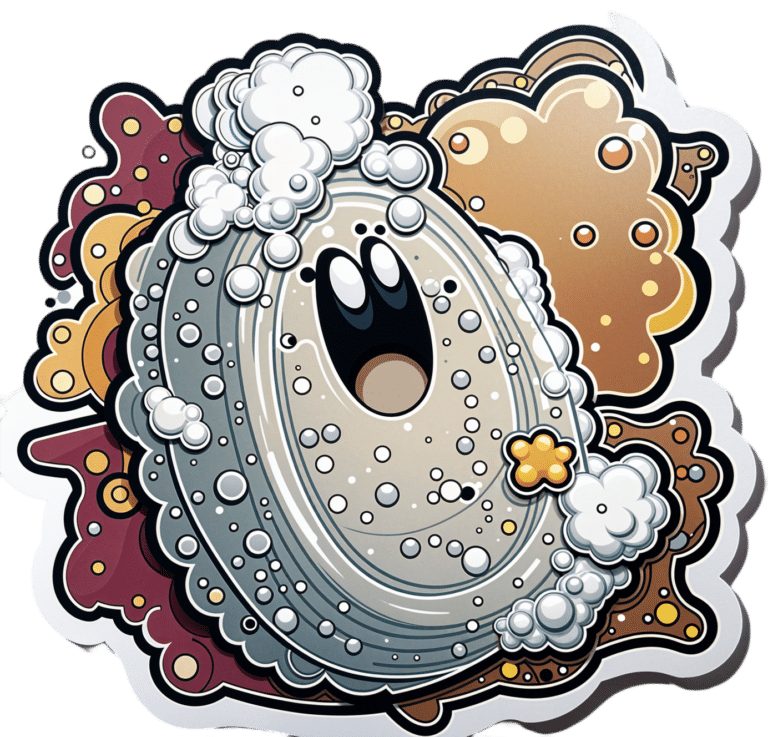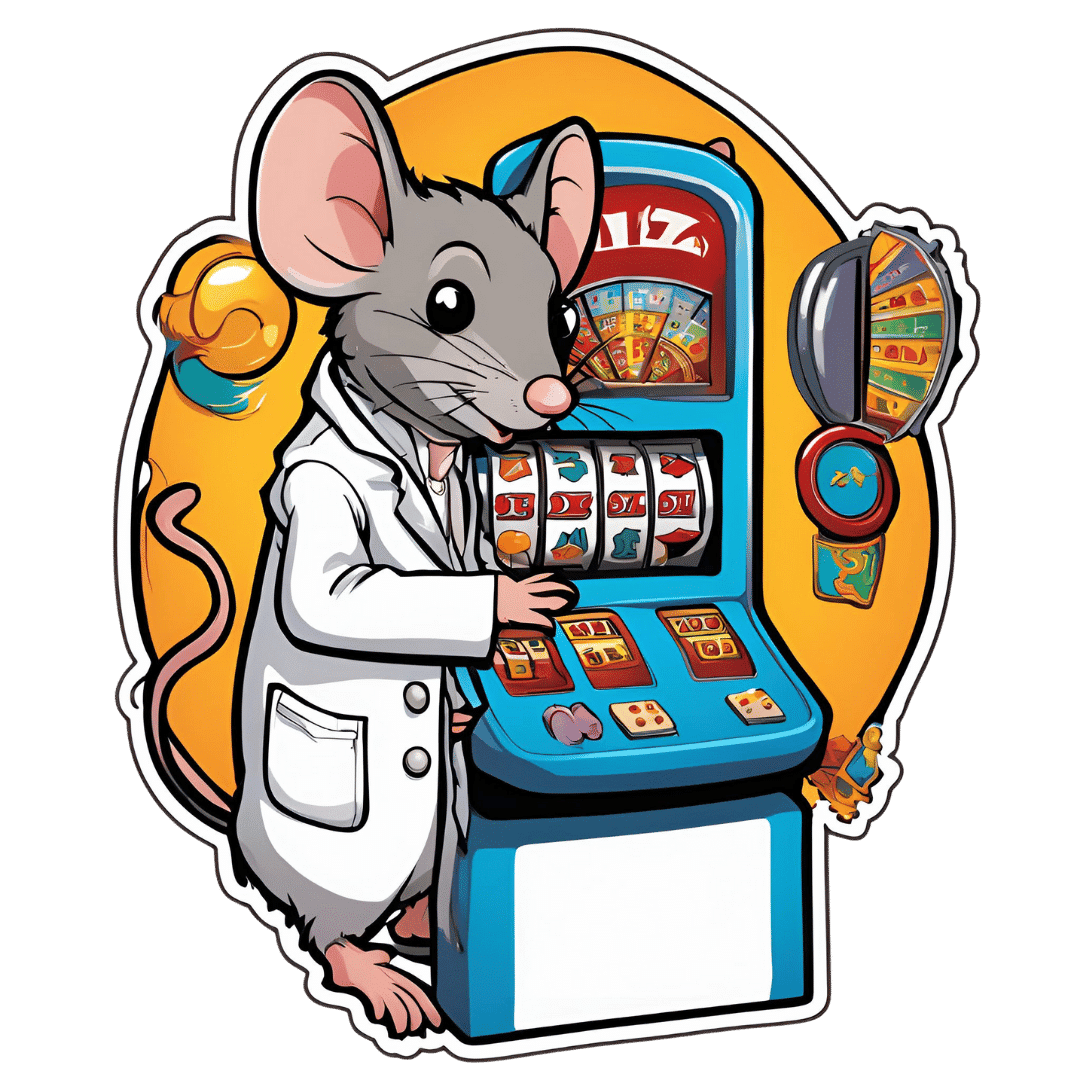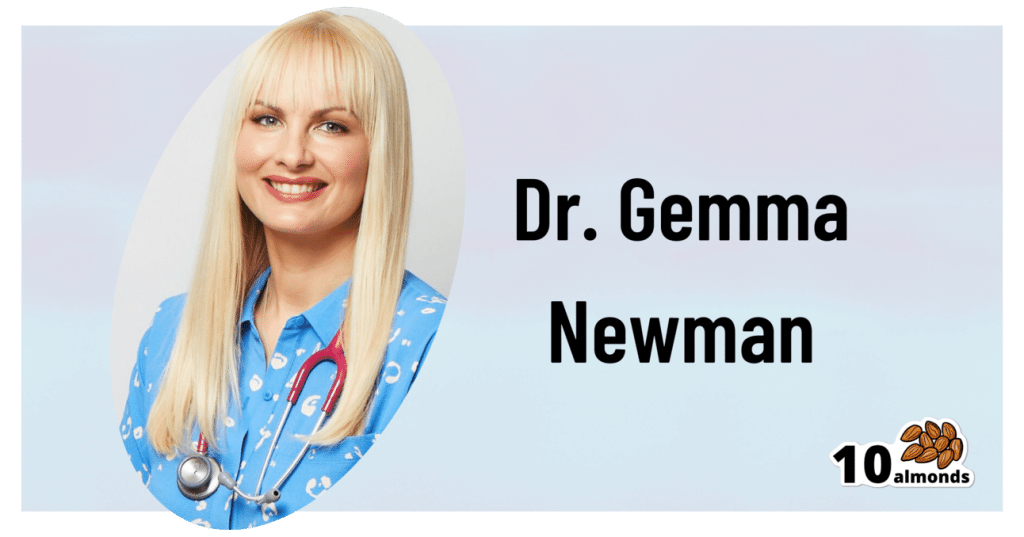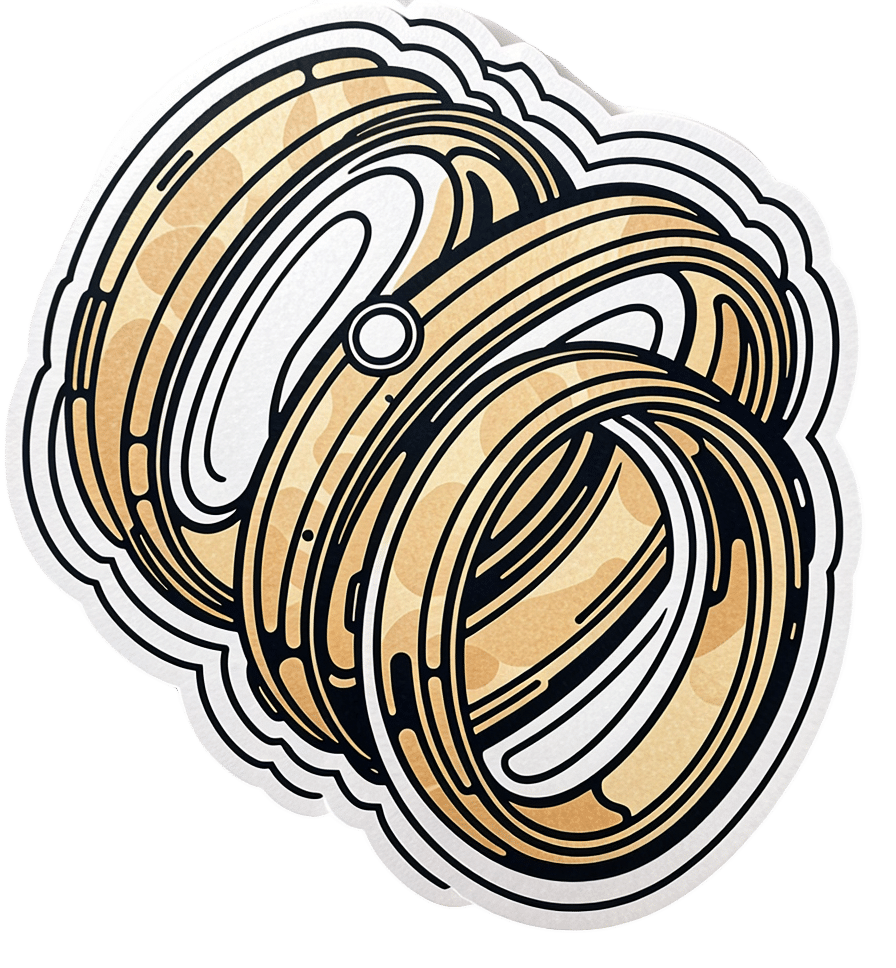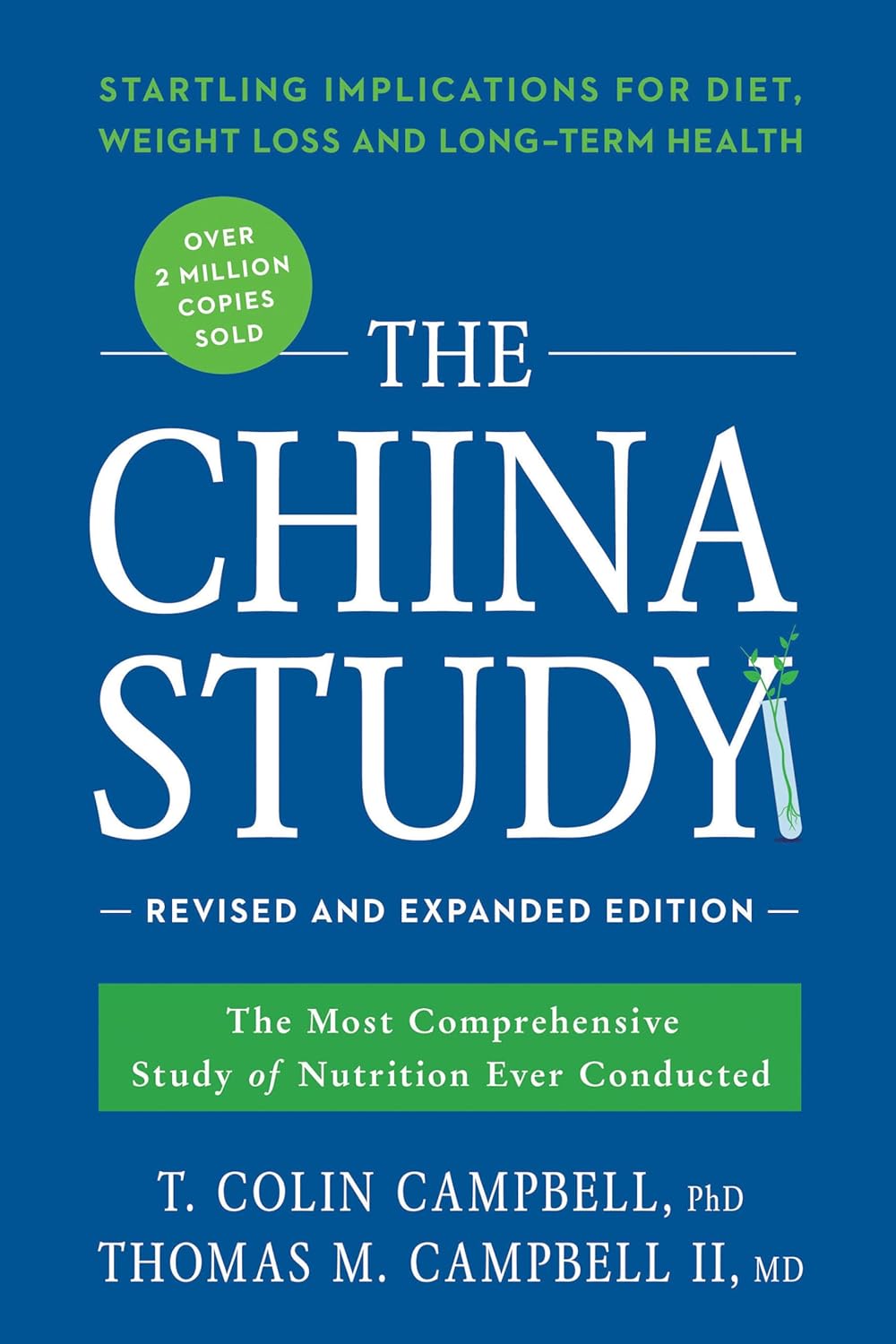
Farmed Fish vs Wild Caught
10almonds is reader-supported. We may, at no cost to you, receive a portion of sales if you purchase a product through a link in this article.
It’s Q&A Day at 10almonds!
Have a question or a request? You can always hit “reply” to any of our emails, or use the feedback widget at the bottom!
In cases where we’ve already covered something, we might link to what we wrote before, but will always be happy to revisit any of our topics again in the future too—there’s always more to say!
As ever: if the question/request can be answered briefly, we’ll do it here in our Q&A Thursday edition. If not, we’ll make a main feature of it shortly afterwards!
So, no question/request too big or small 😎
❝Is it good to eat farm raised fish?❞
We’ll answer this as a purely health-related question (and thus not considering economy, ecology, ethics, or taste).
It’s certainly not as good as wild-caught fish, for several reasons, some more serious than others:
Farmed fish can have quite a different nutritional profile to wild-caught fish, and also contain more contaminants, including heavy metals.
For example, farmed fish tend to have much higher fat content for the same amount of protein, but lower levels of minerals and other nutrients. Here are two side-by-side:
Wild-caught salmon | Farmed salmon
See also:
Quantitative analysis of the benefits and risks of consuming farmed and wild salmon
Additionally, because fish in fish farms tend to be very susceptible to diseases (because of the artificially cramped and overcrowded environment), fish farms tend to make heavy use of antibiotics, which can cause all sorts of problems down the line:
So definitely, “let the buyer beware”!
Don’t Forget…
Did you arrive here from our newsletter? Don’t forget to return to the email to continue learning!
Recommended
Learn to Age Gracefully
Join the 98k+ American women taking control of their health & aging with our 100% free (and fun!) daily emails:
-
The Meds That Impair Decision-Making
10almonds is reader-supported. We may, at no cost to you, receive a portion of sales if you purchase a product through a link in this article.
Impairment to cognitive function is often comorbid with Parkinson’s disease. That is to say: it’s not a symptom of Parkinson’s, but it often occurs in the same people. This may seem natural: after all, both are strongly associated with aging.
However, recent (last month, at time of writing) research has brought to light a very specific way in which medication for Parkinson’s may impair the ability to make sound decisions.
Obviously, this is a big deal, because it can affect healthcare decisions, financial decisions, and more—greatly impacting quality of life.
See also: Age-related differences in financial decision-making and social influence
(in which older people were found more likely to be influenced by the impulsive financial preferences of others than their younger counterparts, when other factors are controlled for)
As for how this pans out when it comes to Parkinson’s meds…
Pramipexole (PPX)
This drug can, due to an overlap in molecular shape, mimic dopamine in the brains of people who don’t have enough—such as those with Parkinson’s disease. This (as you might expect) helps alleviate Parkinson’s symptoms.
However, researchers found that mice treated with PPX and given a touch-screen based gambling game picked the high-risk, high reward option much more often. In the hopes of winning strawberry milkshake (the reward), they got themselves subjected to a lot of blindingly-bright flashing lights (the risk, to which untreated mice were much more averse, as this is very stressful for a mouse).
You may be wondering: did the mice have Parkinson’s?
The answer: kind of; they had been subjected to injections with 6-hydroxydopamine, which damages dopamine-producing neurons similarly to Parkinson’s.
This result was somewhat surprising, because one would expect that a mouse whose depleted dopamine was being mimicked by a stand-in (thus, doing much of the job of dopamine) would be less swayed by the allure of gambling (a high-dopamine activity), since gambling is typically most attractive to those who are desperate to find a crumb of dopamine somewhere.
They did find out why this happened, by the way, the PPX hyperactivated the external globus pallidus (also called GPe, and notwithstanding the name, this is located deep inside the brain). Chemically inhibiting this area of the brain reduced the risk-taking activity of the mice.
This has important implications for Parkinson’s patients, because:
- on an individual level, it means this is a side effect of PPX to be aware of
- on a research-and-development level, it means drugs need to be developed that specifically target the GPe, to avoid/mitigate this side effect.
You can read the study in full here:
Don’t want to get Parkinson’s in the first place?
While nothing is a magic bullet, there are things that can greatly increase or decrease Parkinson’s risk. Here’s a big one, as found recently (last week, at the time of writing):
Air Pollution and Parkinson’s Disease in a Population-Based Study
Also: knowing about its onset sooner rather than later is scary, but beneficial. So, with that in mind…
Recognize The Early Symptoms Of Parkinson’s Disease
Finally, because Parkinson’s disease is theorized to be caused by a dysfunction of alpha-synuclein clearance (much like the dysfunction of beta-amyloid clearance, in the case of Alzheimer’s disease), this means that having a healthy glymphatic system (glial cells doing the same clean-up job as the lymphatic system, but in the brain) is critical:
How To Clean Your Brain (Glymphatic Health Primer)
Take care!
Share This Post
-
The Plant Power Doctor
10almonds is reader-supported. We may, at no cost to you, receive a portion of sales if you purchase a product through a link in this article.
A Prescription For GLOVES
This is Dr. Gemma Newman. She’s a GP (General Practitioner, British equivalent to what is called a family doctor in America), and she realized that she was treating a lot of patients while nobody was actually getting better.
So, she set out to help people actually get better… But how?
The biggest thing
The single biggest thing she recommends is a whole foods plant-based diet, as that’s a starting point for a lot of other things.
Click here for an assortment of short videos by her and other health professionals on this topic!
Specifically, she advocates to “love foods that love you back”, and make critical choices when deciding between ingredients.
Click here to see her recipes and tips (this writer is going to try out some of these!)
What’s this about GLOVES?
We recently reviewed her book “Get Well, Stay Well: The Six Healing Health Habits You Need To Know”, and now we’re going to talk about those six things in more words than we had room for previously.
They are six things that she says we should all try to get every day. It’s a lot simpler than a lot of checklists, and very worthwhile:
Gratitude
May seem like a wishy-washy one to start with, but there’s a lot of evidence for this making a big difference to health, largely on account of how it lowers stress and anxiety. See also:
How To Get Your Brain On A More Positive Track (Without Toxic Positivity)
Love
This is about social connections, mostly. We are evolved to be a social species, and while some of us want/need more or less social interaction than others, generally speaking we thrive best in a community, with all the social support that comes with that. See also:
How To Beat Loneliness & Isolation
Outside
This is about fresh air and it’s about moving and it’s about seeing some green plants (and if available, blue sky), marvelling at the wonder of nature and benefiting in many ways. See also:
Vegetables
We spoke earlier about the whole foods plant-based diet for which she advocates, so this is that. While reducing/skipping meat etc is absolutely a thing, the focus here is on diversity of vegetables; it is best to make a game of seeing how many different ones you can include in a week (not just the same three!). See also:
Three Critical Kitchen Prescriptions
Exercise
At least 150 minutes moderate exercise per week, and some kind of resistance work. It can be calisthenics or something; it doesn’t have to be lifting weights if that’s not your thing! See also:
Resistance Is Useful! (Especially As We Get Older)
Sleep
Quality and quantity. Yes, 7–9 hours, yes, regardless of age. Unless you’re a child or a bodybuilder, in which case make it nearer 12. But for most of us, 7–9. See also:
Why You Probably Need More Sleep
Want to know more?
As well as the book we mentioned earlier, you might also like:
The Plant Power Doctor – by Dr. Gemma Newman
While the other book we mentioned is available for pre-order for Americans (it’s already released for the rest of the world), this one is available to all right now, so that’s a bonus too.
If books aren’t your thing (or even if they are), you might like her award-winning podcast:
Take care!
Share This Post
-
How White Is Your Tongue?
10almonds is reader-supported. We may, at no cost to you, receive a portion of sales if you purchase a product through a link in this article.
It’s Q&A Day at 10almonds!
Have a question or a request? We love to hear from you!
In cases where we’ve already covered something, we might link to what we wrote before, but will always be happy to revisit any of our topics again in the future too—there’s always more to say!
As ever: if the question/request can be answered briefly, we’ll do it here in our Q&A Thursday edition. If not, we’ll make a main feature of it shortly afterwards!
So, no question/request too big or small
❝So its normal to develop a white sort of coating on the tongue, right? It develops when I eat, and is able to (somewhat) easily be brushed off❞
If (and only if) there is no soreness and the coverage of the whiteness is not extreme, then, yes, that is normal and fine.
Your mouth has a microbiome, and it’s supposed to have one (helps keep the conditions in your mouth correct, so that food is broken down and/but your gums and teeth aren’t).
Read more: The oral microbiome: Role of key organisms and complex networks in oral health and disease
The whiteness you often see on a healthy tongue is, for the most part, bacteria and dead cells—harmless.
Cleaning the whiteness off with your brush is fine. You can also scrape off with floss is similar if you prefer. Or a tongue-scraper! Those can be especially good for people for whom brushing the tongue is an unpleasant sensation. Or you can just leave it, if it doesn’t bother you.
By the way, that microbiome is a reason it can be good to go easy on the mouthwash. Moderate use of mouthwash is usually fine, but you don’t want to wipe out your microbiome then have it taken over by unpleasantries that the mouthwash didn’t kill (unpleasantries like C. albicans).
There are other mouthwash-related considerations too:
Toothpastes and mouthwashes: which kinds help, and which kinds harm?
If you start to get soreness, that probably means the papillae (little villi-like things) are inflamed. If there is soreness, and/or the whiteness is extreme, then it could be a fungal infection (usually C. albicans, also called Thrush), in which case, antifungal medications will be needed, which you can probably get over the counter from your pharmacist.
Do not try to self-treat with antibiotics.
Antibiotics will make a fungal infection worse (indeed, antibiotic usage is often the reason for getting fungal growth in the first place) by wiping out the bacteria that normally keep it in check.
Other risk factors include a sugary diet, smoking, and medications that have “dry mouth” as a side effect.
Read more: Can oral thrush be prevented?
If you have any symptoms more exciting than the above, then definitely see a doctor.
Take care!
Share This Post
Related Posts
-
Life After Death? (Your Life; A Loved One’s Death)
10almonds is reader-supported. We may, at no cost to you, receive a portion of sales if you purchase a product through a link in this article.
The Show Must Go On
We’ve previously written about the topics of death and dying. It’s not cheery, but it is important to tackle.
Sooner is better than later, in the case of:
Preparations For Managing Your Own Mortality
And for those who are left behind, of course it is hardest of all:
What Grief Does To Your Body (And How To Manage It)
But what about what comes next? For those who are left behind, that is.
Life goes on
In cases when the death is that of a close loved one, the early days after death can seem like a surreal blur. How can the world go ticking on as normal when [loved one] is dead?
But incontrovertibly, it does, so we can only ask again: how?
And, we get to choose that, to a degree. The above-linked article about grief gives a “101” rundown, but it’s (by necessity, for space) a scant preparation for one of the biggest challenges in life that most of us will ever face.
For many people, processing grief involves a kind of “saying goodbye”. For others, it doesn’t, as in the following cases of grieving the loss of one’s child—something no parent should ever have to face, but it happens:
Dr. Ken Druck | The Love That Never Dies
(with warning, the above article is a little heavy)
In short: for those who choose not to “say goodbye” in the case of the death of a loved one, it’s more often not a case of cold neglect, but rather the opposite—a holding on. Not in the “denial” sense of holding on, but rather in the sense of “I am not letting go of this feeling of love, no matter how much it might hurt to hold onto; it’s all I have”.
What about widows, and love after death?
Note: we’ll use the feminine “widow” here as a) it’s the most common and b) most scientific literature focuses on widows, but there is no reason why most of the same things won’t also apply to widowers.
We say “most”, as society does tend to treat widows and widowers differently, having different expectations about a respectful mourning period, one’s comportment during same, and so on.
As an aside: most scientific literature also assumes heterosexuality, which is again statistically reasonable, and for the mostpart the main difference is any extra challenges presented by non-recognition of marriages, and/or homophobic in-laws. But otherwise, grief is grief, and as the saying goes, love is love.
One last specificity before we get into the meat of this: we are generally assuming marriages to be monogamous here. Polyamorous arrangements will likely sidestep most of these issues completely, but again, they’re not the norm.
Firstly, there’s a big difference between remarrying (or similar) after being widowed, and remarrying (or similar) after a divorce, and that largely lies in the difference of how they begin. A divorce is (however stressful it may often be) more often seen as a transition into a new period of freedom, whereas bereavement is almost always felt as a terrible loss.
The science, by the way, shows the stats for this; people are less likely to remarry, and slower to remarry if they do, in instances of bereavement rather than divorce, for example:
Timing of Remarriage Among Divorced and Widowed Parents
Love after death: the options
For widows, then, there seem to be multiple options:
- Hold on to the feelings for one’s deceased partner; never remarry
- Grieve, move on, find new love, relegating the old to history
- Try to balance the two (this is tricky but can be done*)
*Why is balancing the two tricky, and how can it be done?
It’s tricky because ultimately there are three people’s wishes at hand:
- The deceased (“they would want me to be happy” vs “I feel I would be betraying them”—which two feelings can also absolutely come together, by the way)
- Yourself (whether you actually want to get a new partner, or just remain single—this is your 100% your choice either way, and your decision should be made consciously)
- The new love (how comfortable are they with your continued feelings for your late love, really?)
And obviously only two of the above can be polled for opinions, and the latter one might say what they think we want to hear, only to secretly and/or later resent it.
One piece of solid advice for the happily married: talk with your partner now about how you each would feel about the other potentially remarrying in the event of your death. Do they have your pre-emptive blessing to do whatever, do you ask a respectable mourning period first (how long?), would the thought just plain make you jealous? Be honest, and bid your partner be honest too.
One piece of solid advice for everyone: make sure you, and your partner(s), as applicable, have a good emotional safety net, if you can. Close friends or family members that you genuinely completely trust to be there through thick and thin, to hold your/their hand through the emotional wreck that will likely follow.
Because, while depression and social loneliness are expected and looked out for, it’s emotional loneliness that actually hits the hardest, for most people:
Longitudinal Examination of Emotional Functioning in Older Adults After Spousal Bereavement
…which means that having even just one close friend or family member with whom one can be at one’s absolute worst, express emotions without censure, not have to put on the socially expected appearance of emotional stability… Having that one person (ideally more, but having at least one is critical) can make a huge difference.
But what if a person has nobody?
That’s definitely a hard place to be, but here’s a good starting point:
How To Beat Loneliness & Isolation
Take care!
Don’t Forget…
Did you arrive here from our newsletter? Don’t forget to return to the email to continue learning!
Learn to Age Gracefully
Join the 98k+ American women taking control of their health & aging with our 100% free (and fun!) daily emails:
-
The China Study – by Dr. T Colin Campbell and Dr. Thomas M. Campbell
10almonds is reader-supported. We may, at no cost to you, receive a portion of sales if you purchase a product through a link in this article.
This is not the newest book we’ve reviewed (originally published 2005; this revised and expanded edition 2016), but it is a seminal one.
You’ve probably heard it referenced, and maybe you’ve wondered what the fuss is about. Now you can know!
The titular study itself was huge. We tend to think “oh there was one study” and look to discount it, but it literally looked at the population of China. That’s a large study.
And because China is relatively ethnically homogenous, especially per region, it was easier to isolate what dietary factors made what differences to health. Of course, that did also create a limitation: follow-up studies would be needed to see if the results were the same for non-Chinese people. But even for the rest of us (this reviewer is not Chinese), it already pointed science in the right direction. And sure enough, smaller follow-up studies elsewhere found the same.
But enough about the research; what about the book? This is a book review, not a research review, after all.
The book itself is easy for a lay reader to understand. It explains how the study was conducted (no small feat), and how the data was examined. It also discusses the results, and the conclusions drawn from those results.
In light of all this, it also offers simple actionable advices, on how to eat to avoid disease in general, and cancer in particular. In especially that latter case, one take-home conclusion was: get more of your protein from plants for a big reduction in cancer risk, for example.
Bottom line: this book is an incredible blend of “comprehensive” and “readable” that we don’t often find in the same book! It contains not just a lot of science, but also an insight into how the science works, on a research level. And, of course, its results and conclusions have strong implications for all our lives.
Click here to check out The China Study, to know more about it!
Don’t Forget…
Did you arrive here from our newsletter? Don’t forget to return to the email to continue learning!
Learn to Age Gracefully
Join the 98k+ American women taking control of their health & aging with our 100% free (and fun!) daily emails:
-
9 Little Habits To Have A Better Day
10almonds is reader-supported. We may, at no cost to you, receive a portion of sales if you purchase a product through a link in this article.
Practically gift-wrapped, here are 9 key things to improve any day!
Mindfully does it
These are all things that seem obvious when you read them, but take a moment to consider: how many do you actually do on a daily basis, really? And could you implement the others?
- Remember to be thankful: train your brain to focus on the good in life, either in the morning to start the day positively or at night to unload stress. Or both!
- Change your scenery: visiting new places, even just a walk in the park, can refresh your mind and improve your mood.
- Do one thing at a time: multitasking leads to unfinished, low-quality work. Focusing on one task at a time all but ensures better results.
- Laugh: laughter releases feel-good hormones of various kinds, spreads joy, and relieves tension, making the day more enjoyable. It has longevity-boosting effects too!
- Help someone: helping others boosts happiness, enhances self-worth, and might even provide insights into your own problems. As a bonus, it actually helps the other person, too—so “pay it forward” and all that 🙂
- Prepare the night before: prepping ahead prevents morning stress, making for a smoother and more confident start to the day—which sets the tone of the rest of the day.
- Hype yourself up: even temporary self-belief can boost confidence and its effects are incrementally cumulative over time.
- Relaxation: establish an evening routine (like reading or listening to calming music) to de-stress and improve sleep quality.
- Take your time: being present in the moment enhances enjoyment, improves focus, and cultivates gratitude—which takes us back to #1!
For more on each of these, enjoy:
Click Here If The Embedded Video Doesn’t Load Automatically!
Want to learn more?
You might also like:
Are You Flourishing? (There’s a Scale)
Take care!
Don’t Forget…
Did you arrive here from our newsletter? Don’t forget to return to the email to continue learning!
Learn to Age Gracefully
Join the 98k+ American women taking control of their health & aging with our 100% free (and fun!) daily emails:

